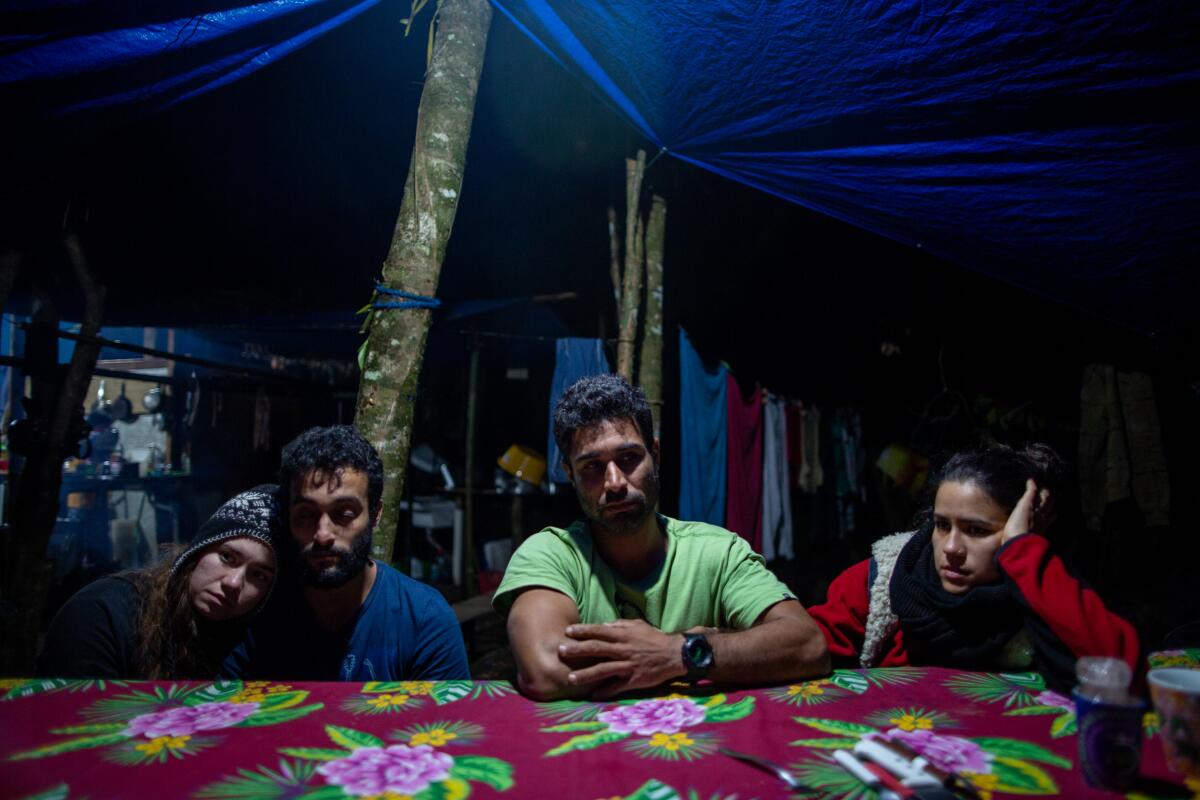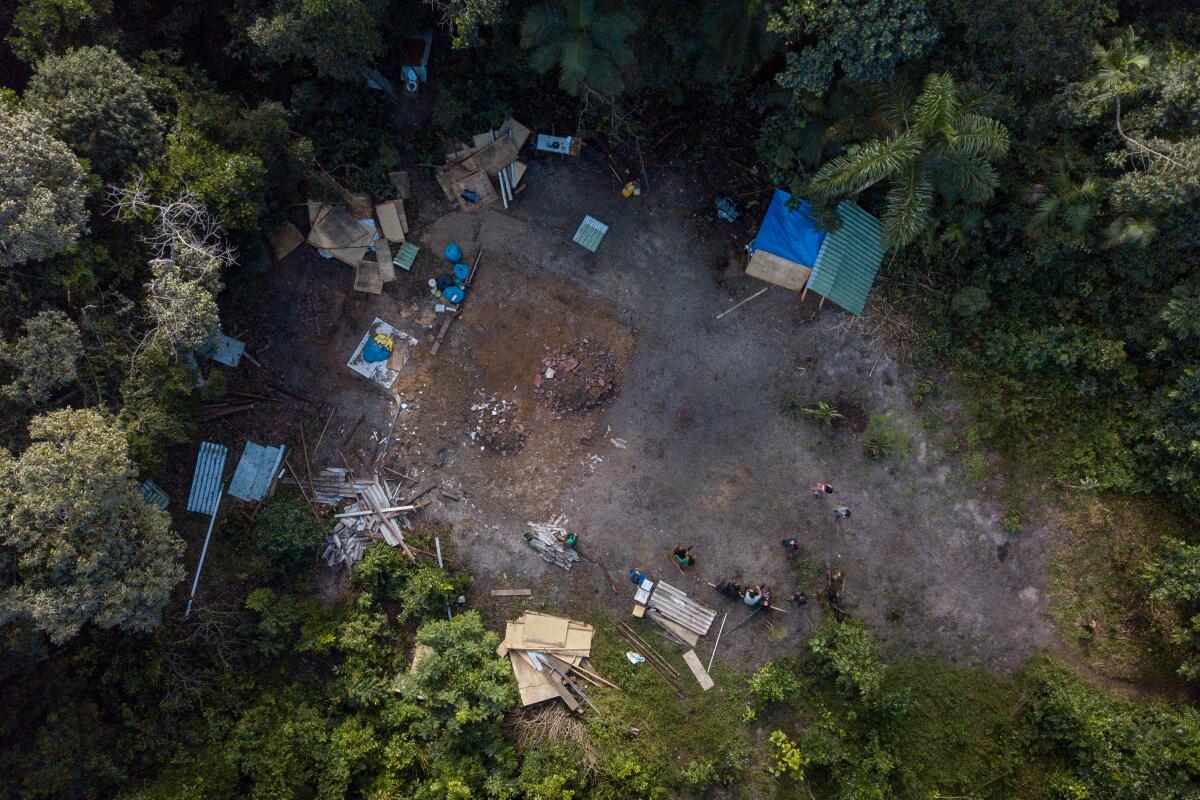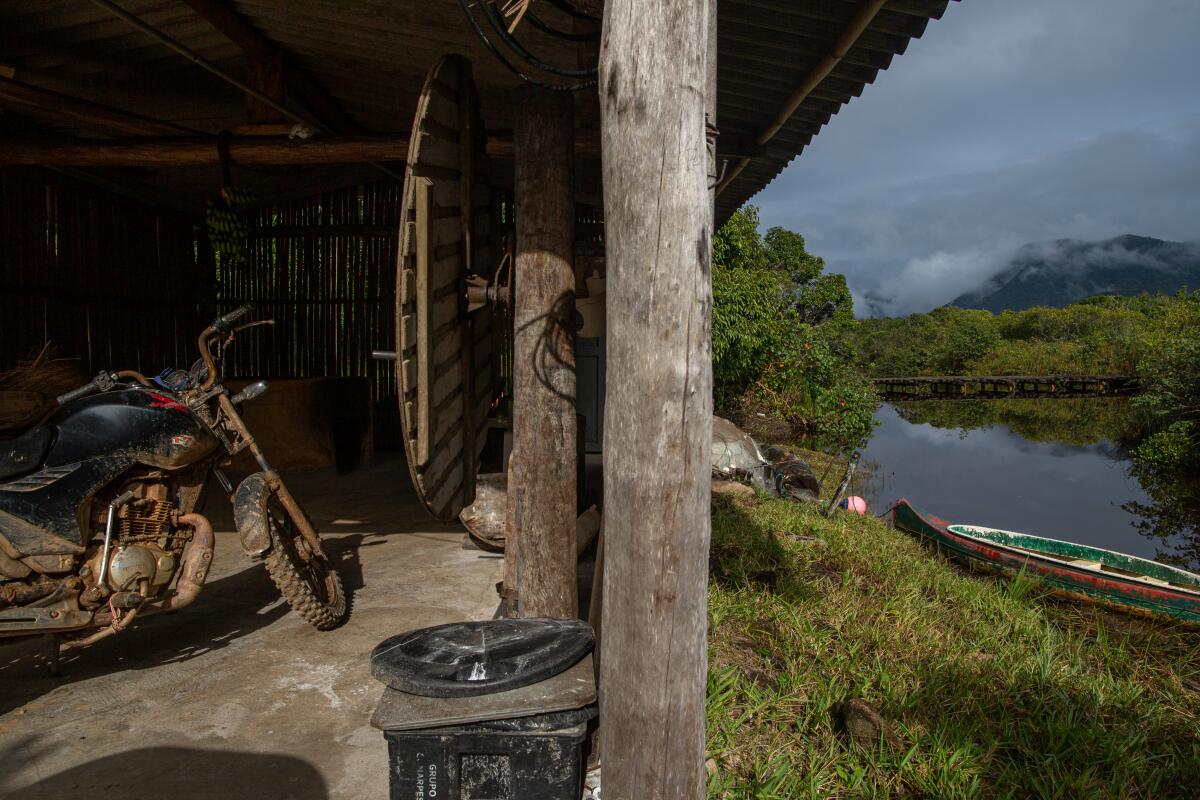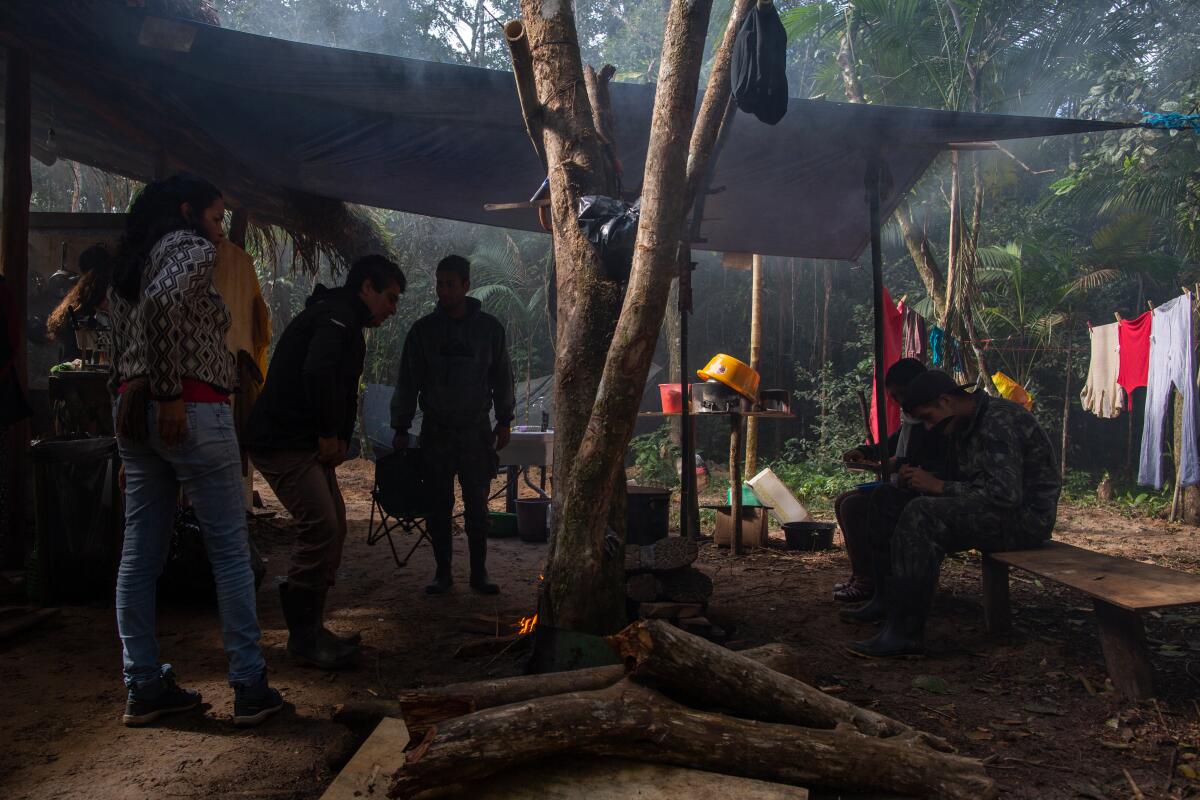In a battle over land, a Brazilian homestead is demolished

- Share via
JUREIA, Brazil — Karina Ferro Otsuka and her relatives had pleaded with the park rangers to spare their homes. But the men said they were simply following orders.
The first house they razed belonged to a cousin and his wife, who were given 10 minutes to remove any possessions.
“We had to rush to save what we could,” Ferro said.
Demolition of the one-room, wooden structure took the 15 rangers about two hours as police officers stood guard.
Ferro couldn’t bear to watch the destruction of the second house, which belonged to another cousin and his wife and sat across a dirt road from her own abode.
So she turned her attention to the pot of rice and sausage cooking on her stove. Tears rolled down her cheeks as the whirring of chain saws and the pops of crowbars echoed through the forest.
After it was over, the family gathered scraps of plywood from the rubble and placed them as rain shields for the piles of neatly folded clothes, steel pots and pans and everything else they had managed to save.
Ferro knew her house was next.
She and her husband, Edmilson de Lima Prado, were expecting their first child in December and planning on a home birth. Now that seemed unlikely — at least not in this home.

The three houses were just five months old. The young couples had all been living with relatives nearby but wanted independence. They chose the location near the slow-flowing Rio Verde and small groves of oranges, avocados, limes and jackfruit.
The couples say that the land has been in their family for eight generations and that state law — as well as constitutional protections for traditional coastal communities known as caicaras — gives them the right to build on it.
But the government says the plots they chose sit too far inside the Jureia-Itatins Ecological Station, an environmentally sensitive area three hours south of Sao Paulo, that was established in 1986 and is protected by international treaty as a UNESCO World Heritage site.
The Forest Foundation — part of the state agency responsible for conservation — said in a statement that the location where the three homes were built is “uninhabited, remote and is home to the largest preserved area of the Atlantic Forest in Brazil and in the world.”
“It is not fit for occupancy,” the statement continued. “There hasn’t been a caicara community in the deforested area where the houses were built since 1980.”
The government suggested that Ferro and her family would be allowed to build about six miles away in a development that the government set aside for caicaras displaced from the forest.
But the family said that moving to the development would doom its ability to live as subsistence farmers and fishermen.
Most other relatives gave up that traditional life decades ago, drawn away to nearby towns for their public schools and health clinics.
The couples acknowledge that they built the houses after the government rejected their first application for permission and never got back to them on their second.
Still, they were surprised when the demolition crew showed up on July 4 and police blocked off the roads leading to the new homes.

Ferro’s husband, Prado, and his cousin Marcos Prado had left early that morning to go fishing and wound up spending the day in police detention.
Officially, they were held because they had been driving a motorcycle without identification, but the family said the real reason was to keep them away during the demolition.
With two of the houses already gone, Ferro braced for her final stand.
As the rangers stomped toward her house, cousins, aunts and uncles, along with the family attorney, who arrived as the second home was coming down, ran ahead and went inside.
Ferro told them to sit. As long as they remained in the house, nobody would be able to tear it down.
The family pleaded with the rangers and the police for mercy. Ferro was pregnant, they noted, with nowhere else to go.
The police captain conceded and told the rangers to pack up.
Eight days later, a judge issued an injunction protecting the home from demolition by the state.
The order said that the family had the legal right to stay in the Rio Verde area but did not discuss the specific plots in question or grant the family permission to rebuild the two homes that were destroyed.

The family considers the decision a win, but their fear that it could be reversed has prevented them from rebuilding the two houses that were demolished.
The government says it will fight to have the court order overturned. A group of anthropologists and two state representative politicians have taken up the family’s cause.
For now, the three couples share Ferro’s house. Friends and other relatives take turns sleeping in tents around the small blue house in a demonstration of support.
“Without our land,” said Marcos Prado, whose house was the second to be demolished, “we become folklore.”
More to Read
Sign up for Essential California
The most important California stories and recommendations in your inbox every morning.
You may occasionally receive promotional content from the Los Angeles Times.













